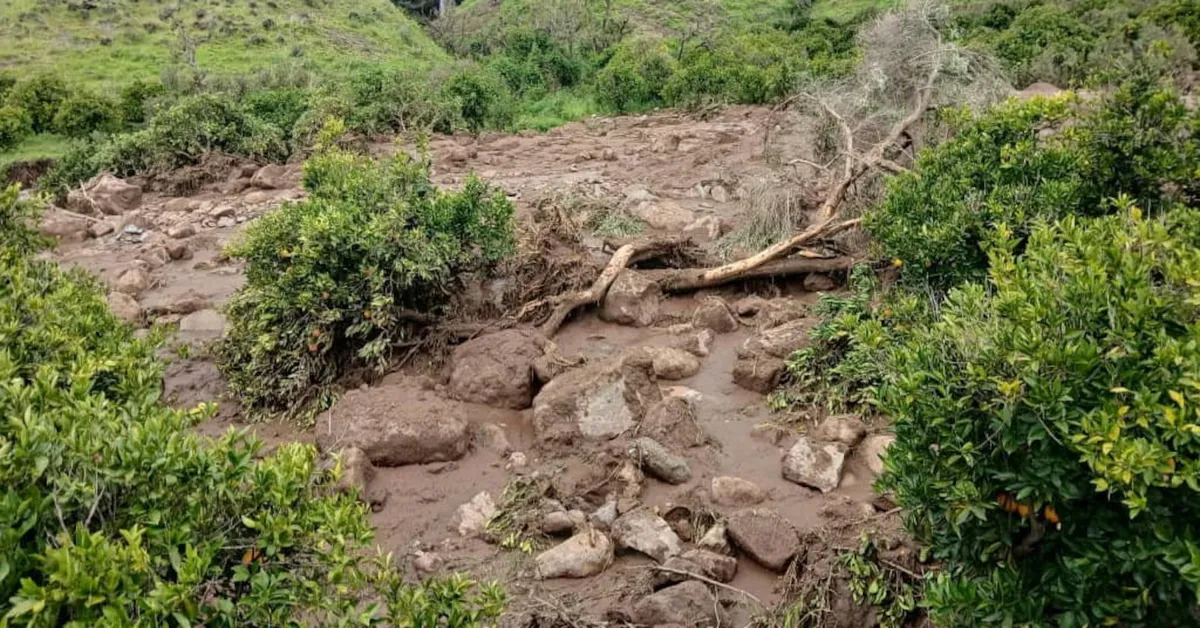
On September 2, an armed group in western Sudan reported a devastating landslide that buried the mountain village of Tarseen, resulting in a catastrophic loss of life. The Sudan Liberation Movement/Army (SLM/A) stated that at least 1,000 people have been killed due to this disaster, with only one survivor emerging from the rubble. This tragedy has prompted urgent calls for international assistance to recover bodies and rescue residents affected by the subsequent torrential rain.
The SLM/A, which has governed a portion of the Jebel Marra region autonomously for years, has reached out to the United Nations and various international aid agencies for help. Their appeal emphasizes the grim task of collecting the bodies of victims, which include men, women, and children. The village of Tarseen, known for its rich citrus production, has been devastated and is now completely leveled, according to statements made by the SLM/A.
Continuing rainfall is complicating rescue efforts, making travel in the region extremely difficult. The SLM/A leader, Abdelwahid Mohamed Nur, highlighted the fear among nearby villagers regarding the potential for similar disasters if the torrential rain continues. He stressed the urgent need for a comprehensive evacuation plan and the provision of emergency shelter for those at risk.
The United Nations has reported a fluctuating death toll from local sources, estimating that between 300 and 1,000 people may have perished in the landslide. Arjimand Hussain, who is the regional response manager for the development organization Plan International, noted that the last 45 kilometers leading to Tarseen are currently impassable by motor vehicles; access is only possible on foot or with the aid of donkeys.
In the wake of the disaster, volunteers have managed to recover nine bodies, shared Abdelhafiz Ali from the Jebel Marra Emergency Room. This village had previously provided refuge for hundreds displaced by ongoing conflicts in the region. The SLM/A has maintained a neutral stance amidst the civil war between the Sudanese army and the paramilitary Rapid Support Forces (RSF), both of which are vying for control of al-Fashir, the capital of North Darfur.
The humanitarian situation in Darfur remains dire, with many residents of al-Fashir and surrounding areas seeking shelter in Jebel Marra. Unfortunately, critical resources such as food, shelter, and medical supplies are woefully inadequate. Disturbingly, hundreds of thousands of individuals have been left vulnerable to the annual floods, with Tawila—a location that has welcomed many displaced residents—experiencing a cholera outbreak. The ongoing civil war has left over half of Sudan's population facing crisis levels of hunger, exacerbating the already precarious living conditions.
The army-controlled government in Sudan has expressed condolences and a willingness to assist the affected areas. Mohamed Hassan al-Taishi, the prime minister of the newly-installed RSF-controlled rival government, has stated that he will coordinate with the SLM/A to facilitate the delivery of aid supplies to the disaster-stricken region. Additionally, Pope Leo extended his condolences and prayers for those impacted by this tragic event, according to a statement from the Vatican.